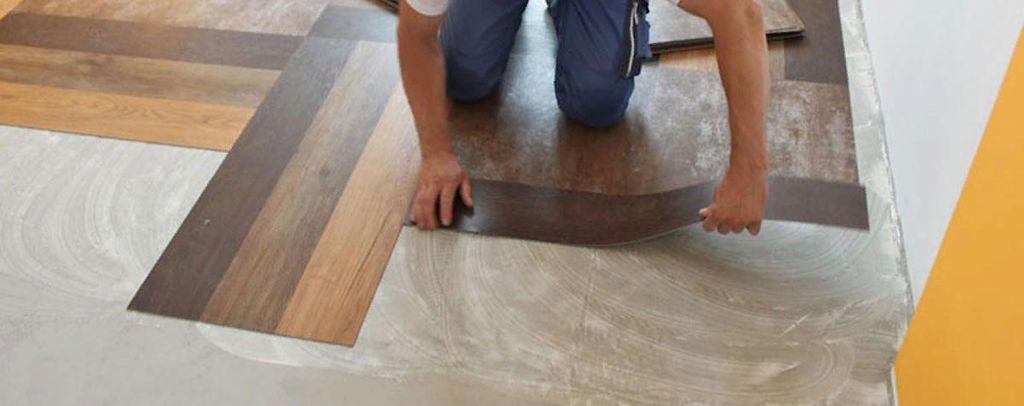The floor adhesives market is experiencing significant shifts, largely influenced by the increasing popularity of luxury vinyl tiles (LVT). As a versatile, durable, and aesthetically pleasing flooring option, LVT has gained substantial traction in both residential and commercial spaces. The growing adoption of LVT is reshaping the landscape of the floor adhesives market, driving demand for specialized adhesive solutions that can meet the unique requirements of this flooring type.
The Growth of Luxury Vinyl Tiles
Luxury vinyl tiles (LVT) have become a go-to flooring option for many commercial and residential applications, thanks to their affordability, durability, and versatility. LVT mimics the appearance of natural materials such as wood, stone, or ceramic but is lighter, easier to maintain, and more cost-effective. It’s no surprise that the demand for LVT has surged in recent years, with an increasing number of property owners and businesses opting for this flooring solution.
Market Shifts: Adhesive Solutions for LVT
As the demand for LVT grows, so does the need for adhesive solutions tailored to its unique properties. LVT often requires adhesives that offer strong initial grab, flexibility, moisture resistance, and the ability to bond with a variety of substrates. These adhesives must also support the long term durability of the LVT installation, ensuring that the flooring remains firmly in place despite high foot traffic, environmental fluctuations, and potential moisture exposure.
The increasing popularity of LVT is prompting manufacturers in the floor adhesives market to innovate and offer specialized solutions. Traditional adhesives, while effective for other types of flooring, may not provide the necessary characteristics required for LVT. As such, adhesives for LVT are typically designed to meet these key performance criteria:
-
Strong Initial Grab and Bonding Strength: LVT requires adhesives that can provide strong adhesion immediately upon installation to prevent shifting or slipping, especially in high-traffic areas.
-
Moisture Resistance: Since LVT is often used in moisture-prone environments such as bathrooms, kitchens, and commercial kitchens, adhesives with superior moisture resistance are essential to prevent weakening or delamination of the bond.
-
Flexibility: LVT’s installation often requires the adhesive to accommodate the natural movement of the material without compromising the bond. Flexible adhesives ensure that the flooring remains intact, even when exposed to temperature fluctuations or light impacts.
-
Low-VOC and Eco-Friendly Formulas: As sustainability becomes an increasing priority for both consumers and businesses, there’s a growing demand for adhesives that are low in volatile organic compounds (VOCs) and free from harmful chemicals. Eco-friendly adhesives are not only better for the environment but also contribute to healthier indoor air quality, which is particularly important in commercial and residential spaces.
Innovations in Adhesive Solutions for LVT
The rise of LVT is driving key innovations in the floor adhesives market, as manufacturers work to develop products that address the specific requirements of this flooring material. One of the most notable innovations is the development of pressure-sensitive adhesives (PSA). These adhesives are designed to bond instantly with LVT, allowing for easier and quicker installation without requiring excessive drying time. PSA solutions are also highly flexible, making them ideal for environments where temperature or humidity changes might otherwise affect the adhesive bond.
Challenges in Adhesive Solutions for LVT
Despite the numerous advantages and growing demand for LVT, the floor adhesives market faces certain challenges as it adapts to this trend. One of the primary challenges is the compatibility of adhesives with the wide range of LVT products available in the market. LVT varies in terms of its composition, surface texture, and backing materials, which can make it difficult to create a one-size-fits-all adhesive solution. As a result, manufacturers must invest in developing more versatile and specialized adhesives that cater to the diverse needs of LVT products.
The Future of Floor Adhesives in the LVT Market
Looking ahead, the floor adhesives market is poised to continue benefiting from the rise of luxury vinyl tiles. As LVT becomes an even more popular choice for residential and commercial applications, the demand for specialized adhesives will only increase. Manufacturers will need to focus on creating adhesives that offer improved performance, ease of installation, and environmental sustainability. Innovations such as advanced pressure-sensitive adhesives, low-VOC formulations, and multi-surface solutions will continue to drive the market forward.



